ISTANBUL, TURKEY (LC)
Thousands of protesters marched in the streets Monday, as Turkey extended its state of emergency for 3 more months. The measure, instituted last July after the failed coup, was set to expire this week. Angry demonstrators chanted, “No, we won” and “We will not make you president,” in reaction to a referendum granting Turkey’s President Recep Tayyip Erdogan extended new powers.
https://twitter.com/MustafaEdib/status/854409181398523906
On April 16, Turkey held a referendum, deciding ‘yes’ on abandoning their parliamentary system for an executive presidency. An executive presidency greatly increases the authority of Erdogan by eliminating the office of Prime Minister and redistributing its powers. Erdogan now has complete power over the budget, no legislative oversight for appointments, and increased sway over the judiciary. Parliament retains minimal powers of scrutiny. The vote also allows Erdogan to run for re-election in 2019, potentially serving for two additional five year terms. Some have considered this a death blow to democracy in Turkey.
On Monday, President Trump called President Erdogan “to congratulate him” on his victory. The White House issued a release about the call later that day.
On Tuesday, deputy press secretary Sarah Sanders sought to clarify the purpose of the call:
“MS. SANDERS: So the President — the purpose of his call, obviously: one, to congratulate; but two — and I think the bigger point and priority — was to talk about shared interests as a NATO Ally and a partner there. And look, the Middle East is a pretty rough neighborhood, and sometimes you have to get together to help them beat the bullies, like Syria. And that was something that certainly needed to be talked about.
Q. Is the President concerned about the future of democracy in Turkey as a result of this vote?
MS. SANDERS: I mean, we want to encourage democracy. And again, the purpose of the President’s call yesterday was not to discourage that but simply to talk about some of the things, like Syria, where they can work together.”
Prior to the referendum, national polling had indicated that a ‘yes’ was the likely outcome. Erdogan had pitched it as a return to stability. However, in the wake of the election, additional allegations of illegality have been added to international criticism of Turkey’s efforts to unfairly tip the scales in its favor.
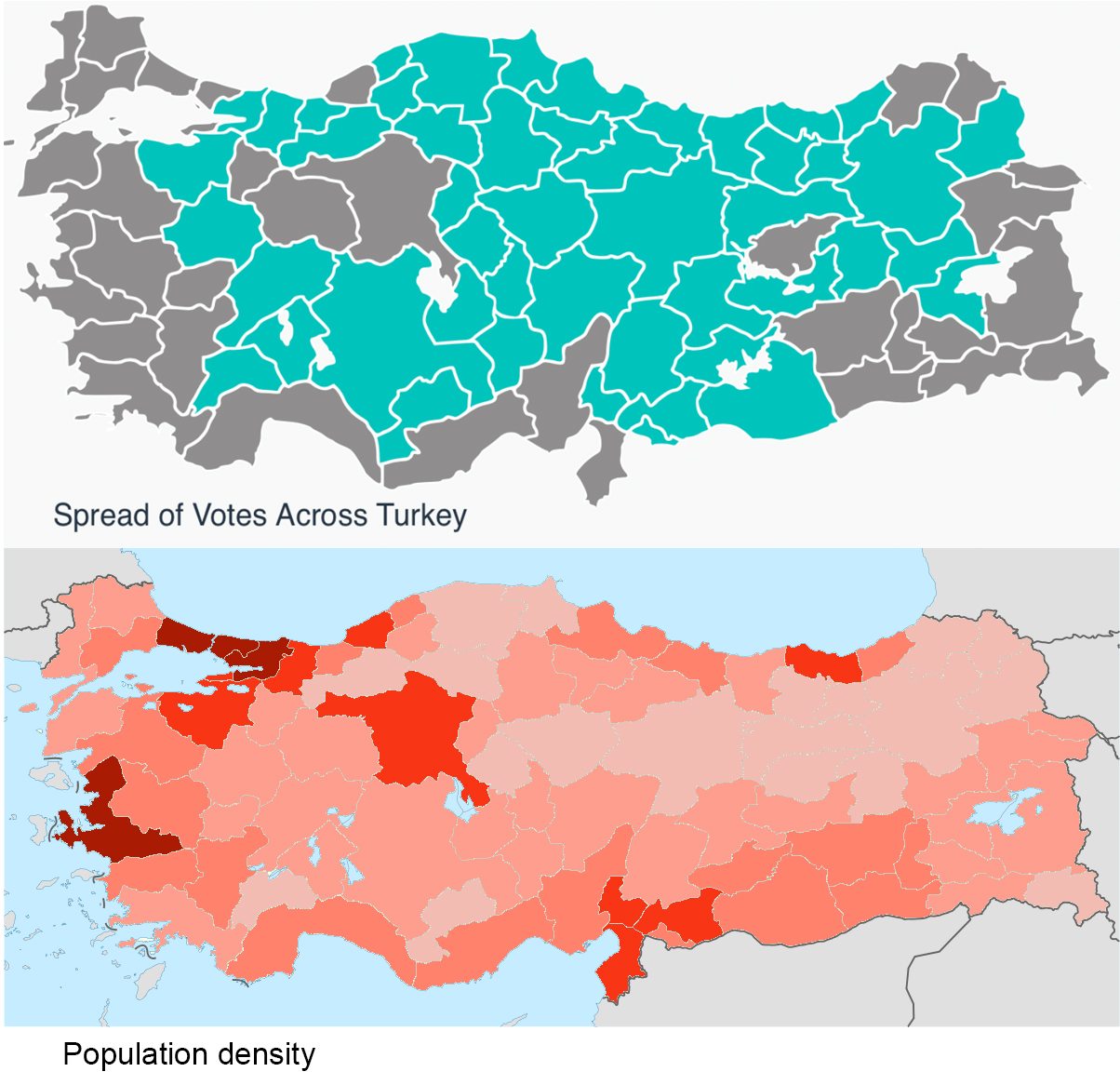
Selahattin Demirtas, a leader the Kurdish Peoples’ Democratic Party (HDP), was a primary voice for ‘no,’ but he was jailed with terror charges on a 142 year sentence. He is one of several opposition voices for ‘no’ to be jailed under terror charges. A Kurdish-language song calling for ‘No’ was banned.
A study of TV coverage in the first three weeks of March found that TRT Haber, the publicly financed national broadcaster, gave officials from the ruling Justice and Development Party (AKP) what amounted to a total of almost 70 hours of coverage. Opposition leaders from the Republican People’s Party (CHP) received just 216 minutes and the HDP received just one minute. The study was conducted by Cumhuriyet Daily, a Turkish paper founded in 1924.
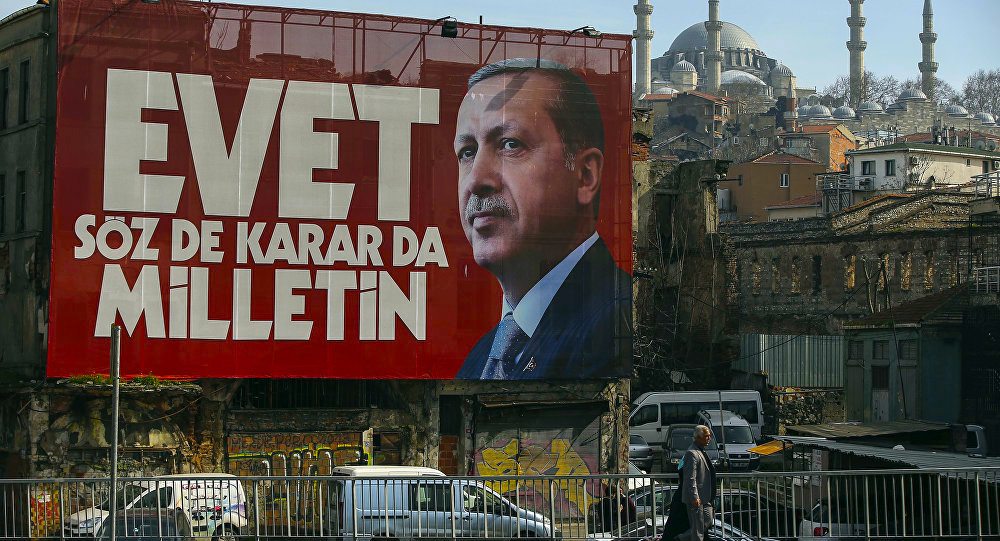
While voting was underway, there was a change to the voting rules by the High Electoral Board. The rule change allowed ballots which had not been officially stamped to be counted. This last minute change has been roundly criticized by the international community and opposition groups. The Organisation for Security and Co-operation in Europe (OSCE), the world’s largest international governmental organization on security, said in a report that the Turkish government was “undermining an important safeguard and contradicting the law.” The report also pointed to police harassment of ‘no’ leaders and rallies, and relative impunity for harassment from ‘yes’ supporters.
In the aftermath of the election, leaders from across the political spectrum in Europe have been calling for an end to EU membership talks with Turkey. The leader of the EU party the Alliance of Liberals and Democrats said this on twitter:
Very tight result in #turkish referendum. If Erdogan persists, EU should stop accession talks
— Guy Verhofstadt (@guyverhofstadt) April 16, 2017
Erdogan’s public statements in the run up to the referendum have been increasingly hostile to the EU, going as far as to characterize German opponents as “grandchildren of Nazism.” This split was made more definitive when, during a post election rally, he announced that Turkey would “immediately” re-implement the death penalty, which Turkey abandoned in 2004 in a series of reforms designed to strengthen its claim to EU membership.
Recent rhetoric and policy from Erdogan marks a major reversal since he and the AKP came to power in 2003. In the course of an attempt to woo the European Union, the AKP oversaw a political liberalization policy, which included depowering generals and bureaucratic members of the ‘deep state,’ increasing civil liberties, and initiating peace talks with the Kurds. The AKP also oversaw a successful economic program, keeping growth rates around 5%, and getting rampant inflation under control with assistance from the IMF.
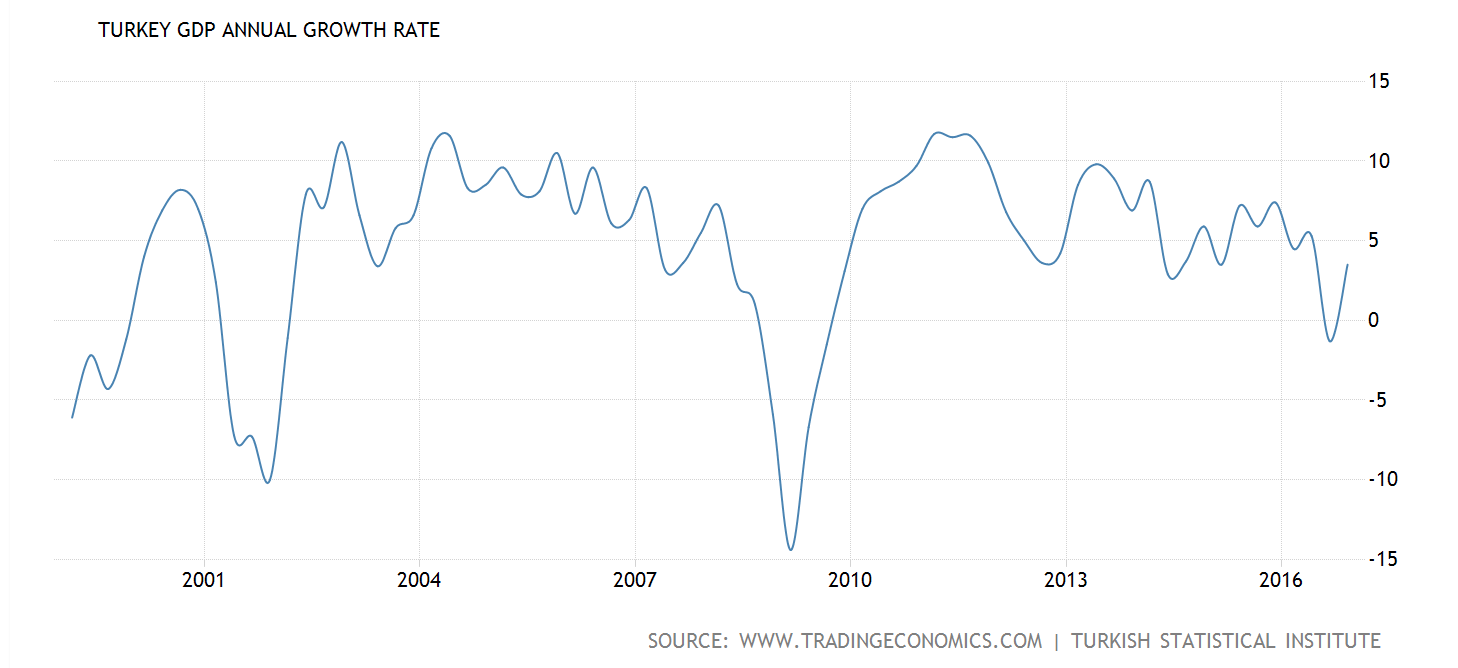
But growth has cooled, and the stability and liberalism of the state have diminished. The state has intervened in the conflict with Syria on its doorstep, and has had to endure the deluge of refugees on the border.
There has also been escalating tension with the Kurdish minority. Last summer the army attempted a coup, which Erdogan blamed on supporters of an American-based cleric, Fethullah Gulen. Its EU membership bid is an ever more remote possibility, having reached a turning point when Germany blocked new talks over a 2013 crackdown on demonstrations in Gezi Park.
https://www.youtube.com/watch?v=KGt0fsyTnRs
+++END
LIMA CHARLIE NEWS, NEW YORK BUREAU
1730 ZULU+5 APR 18 2017
(THE ECONOMIST, GUARDIAN, TELEGRAPH, NEWSWEEK, AND TRADING ECONOMICS CONTRIBUTED WITH INFORMATION TO THIS REPORT)
[Image: SPUTNIK NEWS]
Lima Charlie provides global news, insight & analysis by military veterans and service members Worldwide.
For up-to-date news, please follow us on twitter at @LimaCharlieNews

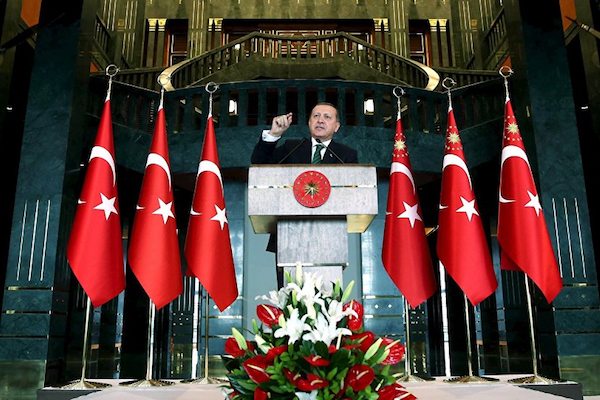
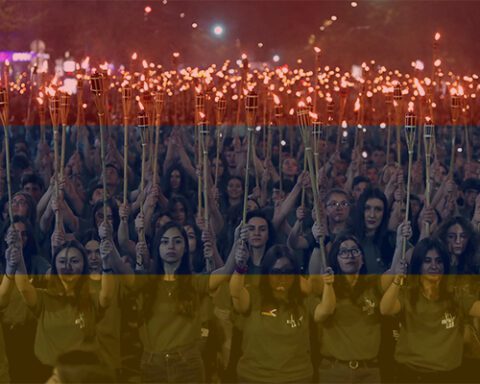
![Blossoming Russo-Turkish alliance leaves U.S., NATO behind [Lima Charlie News]](https://limacharlienews.com/wp-content/uploads/2019/07/Russia-Turkey-alliance-leaves-U.S.-NATO-behind-480x384.png)
![Image The Alevis Dilemma [Lima Charlie News]](https://limacharlienews.com/wp-content/uploads/2019/04/Alevis-Erdogan-480x384.png)


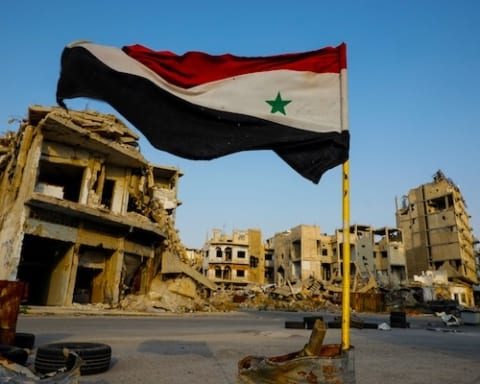
![The Art of Foreign Influence: The Russian Military Adviser [Lima Charlie News]](https://limacharlienews.com/wp-content/uploads/2019/06/The-Art-of-Foreign-Influence-The-Russian-Military-Adviser-480x384.png)
![Iranian crackdown on MEK shows the activist group has popular support [Lima Charlie News]](https://limacharlienews.com/wp-content/uploads/2019/05/Iran-MEK-Lima-Charlie-001-480x384.png)

![Blossoming Russo-Turkish alliance leaves U.S., NATO behind [Lima Charlie News]](https://limacharlienews.com/wp-content/uploads/2019/07/Russia-Turkey-alliance-leaves-U.S.-NATO-behind-150x100.png)